
Graham Bell Centre for the Deaf (GBCD) was founded in 1991 at Pandua with an objective to provide deaf young adults (girls) with skill training to enable them to earn their livelihood to make them confident, self-reliant and contributing members of the society. It was the only one of its kind in the entire Pandua block of Hooghly District. Within a couple of months, to address the emerging need, the organization started expanding its activities from vocational training to need based functional education for deaf children of the locality. Gradually the activities of the organization reached out from one panchayet to five panchayets of the block, catering the needs for therapy, education and rehabilitation of the children and persons with all categories of disabilities. The journey that was started through Centre Based approach, then turned into the Community Based Rehabilitation Approach by ensuring the use of local resources and participation of the families and the community to the maximum extent.
At present the organization is operating in major four blocks (Pandua, Polba-Dadpur, Balagarh and Dhaniakhali) of Hooghly district and Kalna I &Purbasthali II blocks of East Burdwan districts with an objective to cater the four basic needs: Social Inclusion, Therapy & Training, Inclusive Education and Economic Rehabilitation of the children and persons with disabilities.
Our Vision is to create a non-threatening and non-discriminating environment within the society so that persons with disabilities can enjoy a life with equal opportunities and full participation with all other members of the society. Our Mission is to empower the persons with disabilities and promote economic self-reliance among them to ensure an inclusive life with in the mainstream society.
Inclusion, Economic Independence & Empowerment of CWDs & PWDs
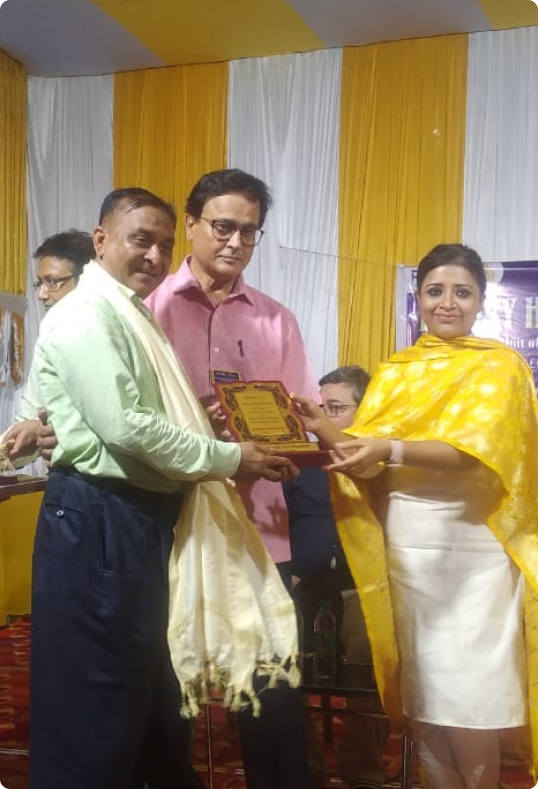
We work through Community Based Rehabilitation (CBR) approach by using the local resources and ensure participation of the community to the maximum extant. We usually reach to the community through panchayets, ICDS, Primary schools and local clubs to identify children with disabilities (CwDs) and their families. We provide home based support through counseling, therapy & training and transfer our skills to the parents to enable them to support their children at home. We also share updated information to the parents on rights and entitlements of CwDs&PwDs.
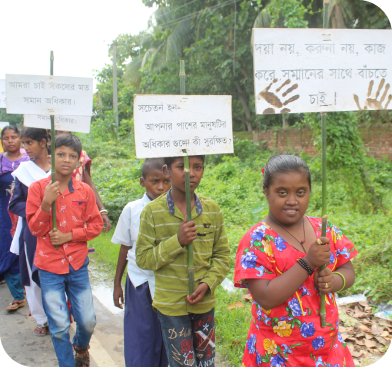
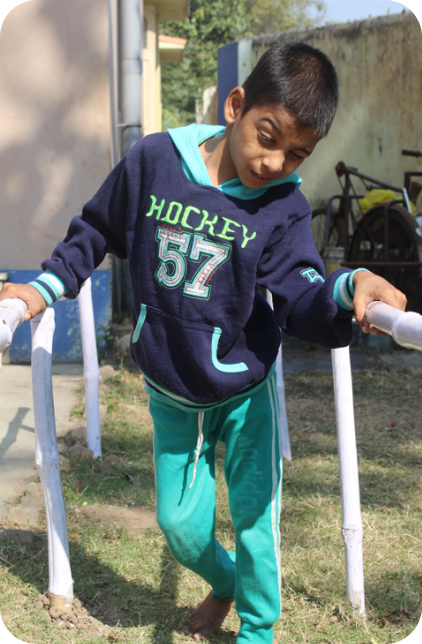
Just providing material support or educational support, will not be able to change the situation, unless and until the affected community is able to recognize and analyze their situation, motivated to participate in the process to overcome the obstacles and empowered to contribute in the process of change. Thus we use a 4 steps/ aspects approach for all our projects and programs.
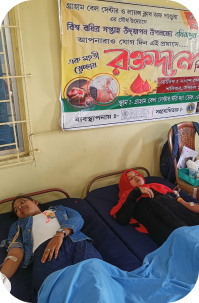
Recognizing and analyzing the situation by the affected community
Counselling the parents , PWDs and the families to make them understand their situation

The affected community is motivated to participate in the process to overcome the obstacles
Guidance & training to the CwDs, PwDs, Parents & families to enable them to participate actively and affectively in the process.

The affected community is empowered with adequate knowledge and information on overcoming obstacles and their rights and entitlements.
Training of Parents & families, Peer & teachers and members of the community on potentials of PwDs, Rights & Entitlements of CwDs & PwDs
Training of CwDs & PwDs on Skill development, Self-Reliance & Independence.

The affected community is contributing in the planning process, implementation and evaluation
Formation of Parents Group, Community Resource group and Resource teachers group and Inviting , encouraging & enabling them to advocate for their rights and contributing to the process of planning, implementation & evaluation of the process
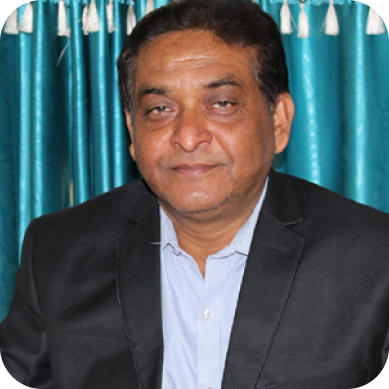
Graham Bell Centre for the Deaf, an Organization working for mainstreaming the children and Persons with Disabilities in Hooghly District since 1991. At present we are intervening in 4 blocks of Hooghly district namely Pandua, Polba-Dadpur, Balagarh and Dhaniakhali.